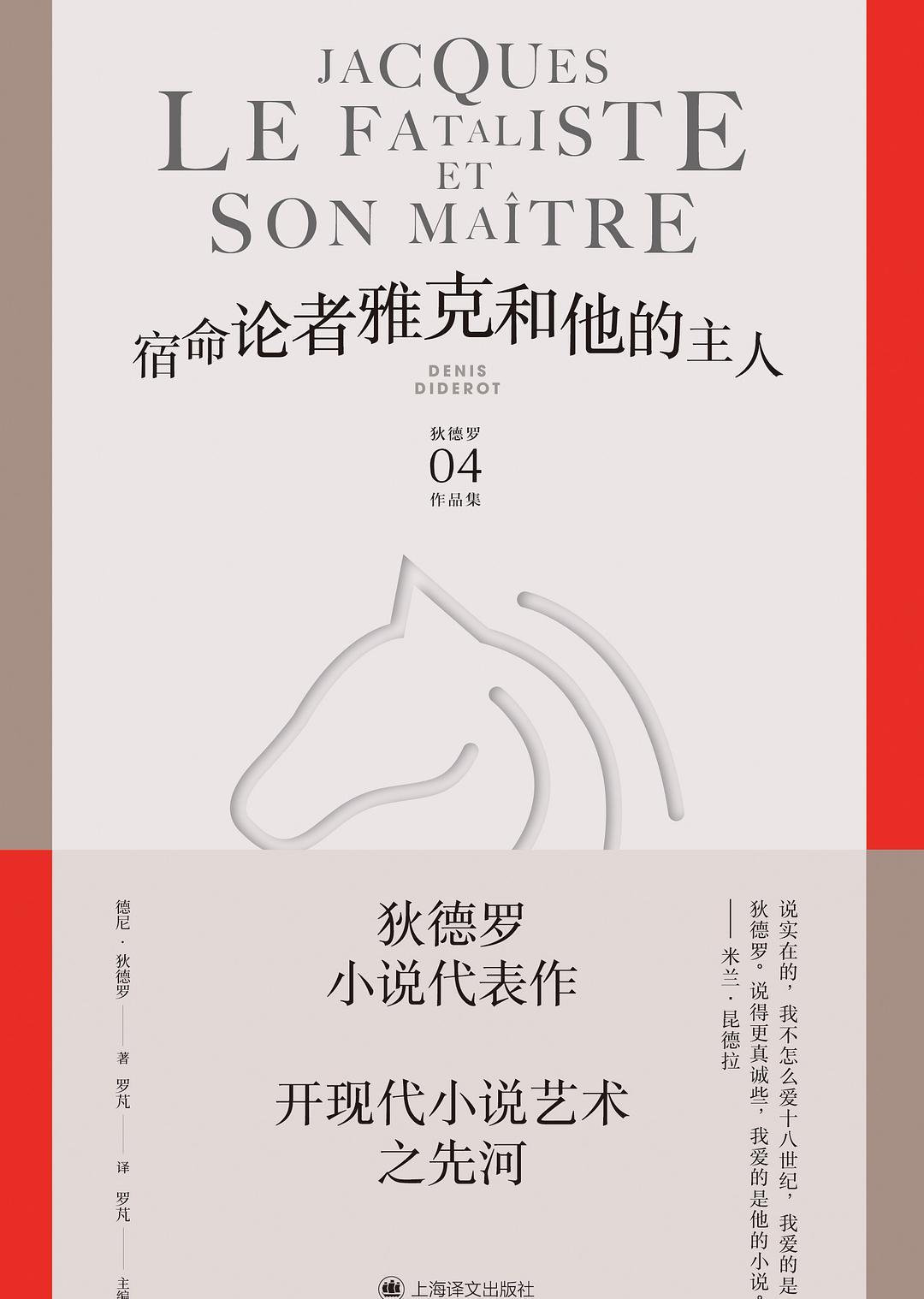Jacques the Fatalist and His Master is a novel by the eighteenth-century French philosopher Diderot. As the title suggests, the important character in the book is a pair of master servants.

Translation of Jacques the Fatalist and His Master
When it comes to literary works related to the master and servant, the easiest thing to think of is naturally Cervantes's Don Quixote. In general, this type of work is mostly the master as the main character, but unlike this novel, the servant Jacques occupies a more important position.
The book revolves around the journey of Jacques and his master, and a series of stories occur along the way, such as the reunion of the two after they are separated, the loss of the master's horse, the two encounter the burial of Jacques's captain, and so on.
All kinds of events are coming. Jacques told his master about the affair he encountered after being injured as a soldier, but it was always through it. But jacques, in his narrative memories, is always constantly interrupted by other things interspersed, the conversation is pulled around, and the topic is repeatedly diverted.
—— This is intentional by the author, and it is also a manifestation of the influence of the British writer Stern's "Biography of Xiang Di".
Another of the more prominent forms of writing of Jacques the Fatalist and His Master is that most of the space is presented through dialogue. Of course, it was basically Jacques's conversation with the host. This is also a technique that Diderot is keen to use. It is not difficult to think of his masterpiece, another novel, Ramo's Nephew.
As a philosopher, Diderot's novels are also clearly ideological. Jacques was a fatalist because he believed in what the captain said, "What happens in the world, whether it is good or bad, is written on it." "That's written on it" appears repeatedly in the book. In other words, it is what we often call "destiny".
In addition, many of Jacques's perceptions also contain philosophical reason. For example, he said to his master, "Good things bring bad things, and bad things bring good things." This is also the famous saying of our wise Lao Tzu: Woe is where blessings depend; blessings are where misfortunes lie.
-END-